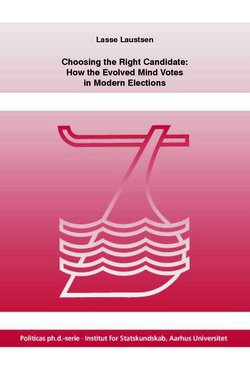Lasse Laustsen
Choosing the Right Candidate: How the Evolved Mind Votes in Modern Elections

This dissertation advances existing knowledge about voters’ choices between different political candidates. It addresses how political candidates’ personal traits—such as their face, voice and personality—affect voters’ electoral decisions. Based on a wide range of experimental, survey and real world election data, the dissertation presents a novel theoretical argument for why and how candidates’ personal traits influence electoral choices. Drawing on advances in evolutionary psychology, the dissertation shows that choices between different candidates in modern politics is guided by a psychological system of adaptive followership, which evolved to help individuals align with the leader who most competently solved problems facing the collective in the human ancestral past. As demonstrated by the empirical results, this psychological system influences voters' candidate preferences on the basis of both contextual conditions surrounding elections and voters’ individual ideological predispositions. The dissertation is of interest to all who care about political candidates, electoral behavior, political preferences, and the growing body of research linking political behavior to deep-seated psychological and biological dispositions.
Published October 2014
![]() Ophavsretten tilhører Politica. Materialet må ikke bruges eller distribueres i kommercielt øjemed.
Ophavsretten tilhører Politica. Materialet må ikke bruges eller distribueres i kommercielt øjemed.